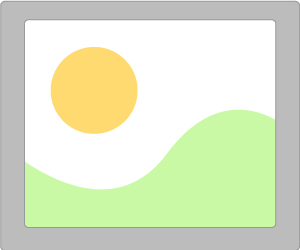訊息: 21
語言: Esperanto
Altebrilas (顯示個人資料) 2016年2月19日下午11:04:35
Kio iĝas akvo per varmado? Ĉu glacio? Ĉu vaporo?
Altebrilas (顯示個人資料) 2016年3月29日下午1:01:55
Try to argue with such sentences, and you will see it does not work.
nornen (顯示個人資料) 2016年3月29日下午3:30:06
Altebrilas:Provu argumenti per tiajn frazojn, kaj vi tuj konstatos, ke tio ne funkcias.Se mi ne tute eraras, tiuj "ĉarnir-propozicioj" estas unu el ĉeferoj de la ĉina gramatiko, ekz 我想你喜欢他打人。 我 estas la subjekto de 想, 你 estas la objekto de 想 kaj samtempe la subjekto de 喜欢, 他 estas la objekto de 喜欢 kaj samtempe la subjekto de 打, 人 estas la objekto de 打.
Try to argue with such sentences, and you will see it does not work.
Do, mi kuraĝas diri, ke ja eblas argumenti per tiaj frazoj.
La sama afero okazas ankaŭ ekzemple en la angla kun "raising verbs":
I wanted him to see you work.
"him" estas la objekto de "wanted" kaj samtempe la subjekto de "see".
"you" estas la objekto de "see" kaj samtempe la subjekto de "work".
Altebrilas (顯示個人資料) 2016年3月30日下午3:52:37
nornen:Ĉu vi kuraĝas fari?
Do, mi kuraĝas diri, ke ja eblas argumenti per tiaj frazoj.
Altebrilas (顯示個人資料) 2016年3月30日下午3:59:50
Mi pensas vin ŝati lin bati homon?
nornen (顯示個人資料) 2016年3月30日下午4:08:50
Altebrilas:我想你喜欢他打人Laŭvorte jes, tamen laŭsence: Mi pensas, ke al vi plaĉas, ke li batas homojn.
Mi pensas vin ŝati lin bati homon?
Kaj mi dubas, ke "mi pensas vin ŝati ion" estas ĝusta Esperanto.
nornen (顯示個人資料) 2016年3月30日下午4:08:50
nornen (顯示個人資料) 2016年3月30日下午5:14:28
Тerurĉjo:Jam ĝustigite.nornen:[duobla afiŝo]tie ĉi povus esti via reklamo
Altebrilas (顯示個人資料) 2016年3月31日下午8:11:24
nornen:En tiu senco, ne eblas argumenti per tiaj frazoj.Altebrilas:我想你喜欢他打人Laŭvorte jes, tamen laŭsence: Mi pensas, ke al vi plaĉas, ke li batas homojn.
Mi pensas vin ŝati lin bati homon?
Kaj mi dubas, ke "mi pensas vin ŝati ion" estas ĝusta Esperanto.
Sed supozante ke tio eblus en esperanto (eventuale aldonante steletojn por averti pri malĝusteco), ĉu vi povus argumenti en ĉi-tiu debato uzante tion?
amigueo (顯示個人資料) 2016年4月8日下午8:04:48


